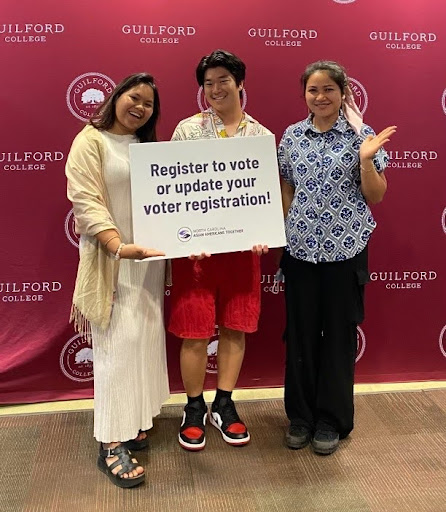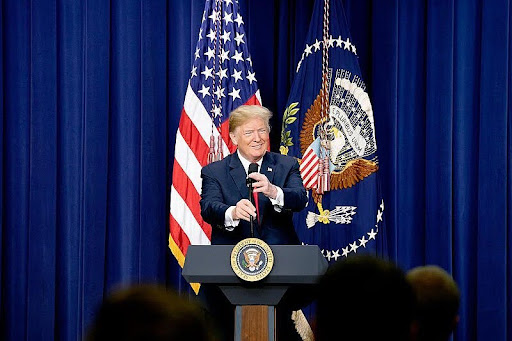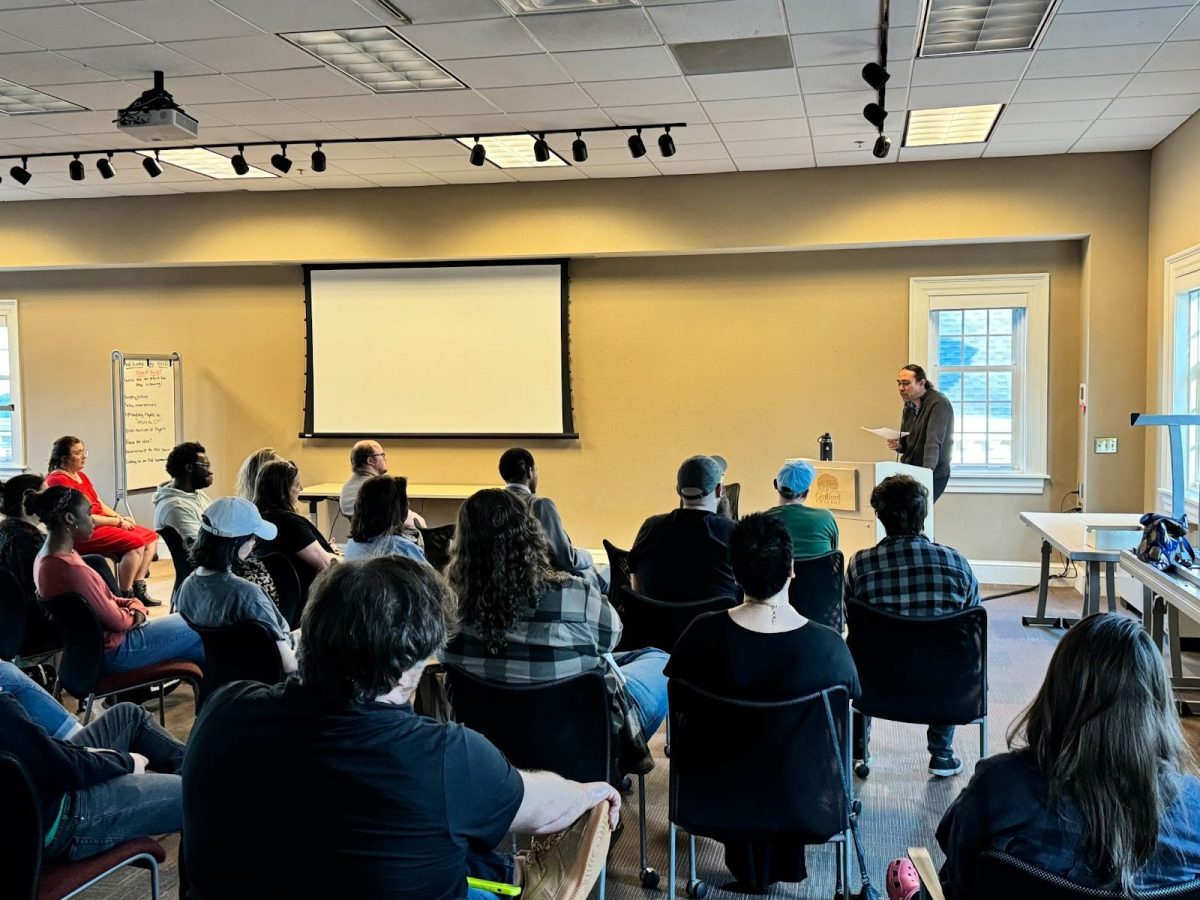Gun violence is not something to be taken lightly; mass shootings, homicides and accidental child deaths are things we all hear about when it comes to guns.
Community members gathered on April 24 for the annual Peace and Conflict Studies Fleming Lecture Series, “Gun Violence in America: Causes and Possible Solutions.” Speakers included Dr. Jacquelyn White, a professor from the University of North Carolina at Greensboro; Guilford College’s Dr. Will Pizio, associate professor of justice & policy studies; and Will Revis, a Greensboro prosecutor.
“I was anticipating that each speaker would have very different opinions on the issues of gun violence,” said sophomore Anna Silva. “Each speaker’s thoughts and views on gun violence were relatively similar.”
Another student was surprised by the forum.
“I anticipated the lecture to discuss how guns account for much of the violence in the country; however, it was somewhat different because statistics were given that prove this theory otherwise,” said first-year Ivie Norris.
Pizio opened the forum by saying he hoped he would “piss you off a little bit.”
“To frame gun violence, we need to understand where we are in relation to violent crime,” said Pizio. “We are at the lowest levels of violent crime in 40 years.”
According to Pizio, gun ownership and murder rates are down, and the country is safer than in recent years.
“I think that mass shootings are very wrongly lumped into gun violence in this country,” said Pizio. “We don’t know why mass shootings happen. How do you solve the problem if you don’t know what the causes are?”
Following Pizio’s presentation, White used statistics and studies to support her ideas on possible ways to reduce gun violence.
“You need a comprehensive, science-based public health approach,” said White. “This really means that gun behavior is a public health problem and should be approached like other public health problems.”
The last speaker was Revis, who filled in last-minute for Chris Parrish, Guilford’s part-time lecturer of justice & policy studies. Revis took the position that gun violence is not the problem — people are.
“Ted Bundy is suspected of killing over 100 people, no gun involved,” said Revis. “So you could stack up some of the worst mass shootings that have occurred, and they’re still not equal to Ted Bundy.”
Revis acknowledged that he owns many guns. He believes part of the problem is that the media glorifies violence.
“I believe that in giving mass attention to the mass shootings, somewhere there is a person watching going, ‘This is a great idea,’” said Revis. “I can name offhand one of the shooters at Columbine. How many of you can name one of the victims?”
According to Revis, we give the suspects, not the victims, all the attention.
As for the cause of the recent crime reduction, Revis thinks there could be many different explanations, depending on whom you ask.
“Liberals will often want to tell you that this progress has nothing to do with the criminal justice system,” said Revis. “That it is the better economy, better education that is causing the reduction. Now, conservatives on the other side will say that it has all to do with putting people in jail. My answer is both.”
Many students enjoyed the opportunity to gain new knowledge on the topic of gun violence through the speakers’ three distinct voices.
“The most prominent thing I took away from the speakers was how there are many different ways of approaching the topic of gun violence,” said Silva. “I really appreciated each speaker’s varying opinions; there were no obvious disagreements or disputes, just different approaches to the issue.”







Corey N • Jun 21, 2014 at 3:14 pm
This is refreshing. Thanks for portraying experts presenting a balanced and less sensational perspective on this issue.
-a Guilford alumnus